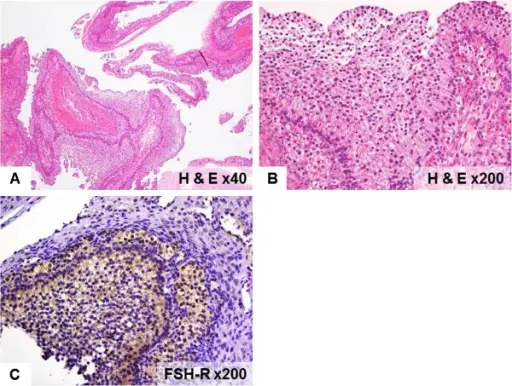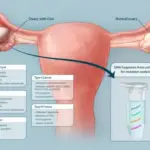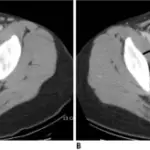Ovarian follicle cysts are small fluid-filled sacs that develop in a woman’s ovaries and can range from small as a pea, to larger than an orange and are generally functional in nature and harmless.
What is the Pathology of Ovarian Follicle Cysts?
The pathology of ovarian follicle cysts is:
-Etiology: The cause of ovarian follicle cysts is hormonal imbalance, and genetic causes.
-Genes involved: RPL15 gene upregulation, MAP1B down regulation.
-Pathogenesis: The sequence of events that lead to ovarian follicle cysts are: lack of physiologic release of the ovum due to excessive FSH stimulation hormone or lack of the normal LH surge at midcycle just before ovulation, cause cysts to grow.
-Morphology: The morphology associated with ovarian follicle cysts shows thin-walled cyst with smooth inner surface containing hemorrhagic fluid.
-Histology: The histology associated with ovarian follicle cysts shows dystrophic calcifications.
How does Ovarian Follicle Cysts Present?
Patients with ovarian follicle cysts typically females at any age but most commonly in nonpregnant women of reproductive age, especially near menarche or menopause. The symptoms, features, and clinical findings associated with ovarian follicle cysts include: pressure and pain in lower abdomen, pelvic pain, nausea vomiting, Pain during sex, weigh gain, periods pain, breast tenderness.
How is Ovarian Follicle Cysts Diagnosed?
Ovarian follicle cysts is diagnosed by: pelvic examination, ultrasound, hormones level test, CA125 blood test.
How is Ovarian Follicle Cysts Treated?
Ovarian follicle cysts is treated by: hormonal contraceptives, surgery, small cysts don’t need generally medicines.
What is the Prognosis of Ovarian Follicle Cysts?
The prognosis of ovarian follicle cysts is good. Most cysts disappear within a few months. However, recurrent ovarian cysts can occur in premenopausal women and women with hormone imbalances. If left untreated, some cysts can decrease fertility.



